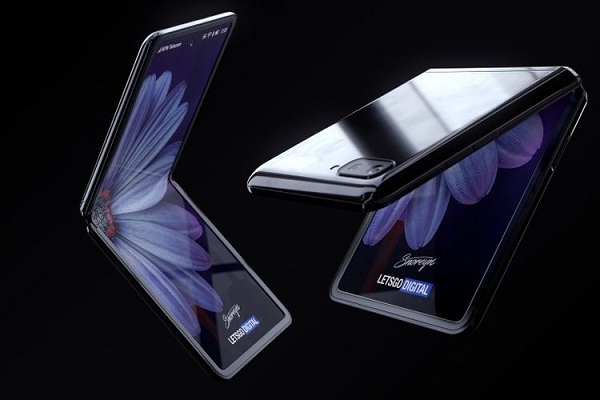The Future of Smartphone Technology: What to Expect
The Future of Smartphone Technology: What to Expect
In the past few decades, smartphones have transformed from basic communication devices to powerful gadgets that have become an integral part of our daily lives.
With constant advancements in technology, the future of smartphones holds the promise of even more incredible innovations.
In this article, we will explore some of the trends and advancements to expect in the future of smartphone technology.
5G Connectivity
One of the most significant developments in smartphone technology is the introduction of 5G networks. 5G offers lightning-fast internet speeds, low latency, and the ability to connect multiple devices simultaneously.
This next-generation connectivity will revolutionize how we interact with our smartphones. With 5G, we can expect smoother video streaming, faster downloads and uploads, and improved real-time communication.
Additionally, the increased bandwidth will pave the way for innovative applications such as augmented reality (AR), virtual reality (VR), and IoT (Internet of Things) integration.
Enhanced Processing Power and AI Integration
As smartphone technology evolves, we can expect a significant boost in processing power. Future smartphones will likely feature more advanced processors and graphics units, enabling faster and smoother performance.
This increased processing power will support resource-intensive applications such as gaming, virtual reality, and complex multitasking.
Moreover, artificial intelligence (AI) integration will play a crucial role in enhancing user experiences. Smartphones will become even smarter, with AI algorithms optimizing various tasks such as image recognition, voice commands, and predictive suggestions. AI-powered virtual assistants will become more intuitive and capable of understanding natural language, making interactions with smartphones more seamless and personalized.
Foldable and Flexible Displays
The introduction of foldable smartphones has already begun, and their popularity is expected to grow in the future. Foldable displays offer the flexibility of transforming a smartphone into a tablet-sized device, providing users with a larger screen real estate when needed. These displays utilize advanced materials and technologies that allow them to be folded and unfolded repeatedly without damaging the screen.
In addition to oldable displays, the future may bring even more innovative forms of flexible displays. We can anticipate smartphones with screens that can be rolled, twisted, or stretched, providing users with a truly adaptable and customizable device. Flexible displays will not only enhance the user experience but also enable new design possibilities for smartphone manufacturers.
Improved Biometrics and Security Features
Biometric authentication methods such as fingerprint scanners and facial recognition have become commonplace in modern smartphones. In the future, we can expect advancements in biometric technology that will further enhance security and convenience.
For instance, smartphones may incorporate under-display fingerprint sensors, eliminating the need for a physical scanner and allowing for a seamless unlocking experience.
Furthermore, emerging technologies like iris scanning and voice recognition may gain prominence, offering additional layers of security.
The combination of multiple biometric factors will make smartphones even more secure, protecting user data and privacy.
Advancements in Camera Technology
Camera capabilities in smartphones have progressed significantly over the years, allowing users to capture high-quality photos and videos. In the future, we can anticipate further advancements in camera technology, with features that rival professional-grade cameras.
Smartphones may incorporate larger sensors, improved low-light performance, and advanced image stabilization techniques.
The integration of computational photography and AI algorithms will enable features like real-time object tracking, advanced image processing, and enhanced portrait mode effects. Additionally, the rise of multiple camera setups, including ultra-wide-angle and periscope zoom lenses, will provide users with more versatility in capturing various scenes and perspectives.
Extended Battery Life and Faster Charging
Battery life has always been a concern for smartphone users. However, future advancements in battery technology will address this issue.
We can expect smartphones with larger-capacity batteries that offer extended usage time on a single charge.
Augmented Reality (AR) and Virtual Reality (VR) Integration
The future of smartphone technology will bring exciting advancements in augmented reality (AR) and virtual reality (VR) integration.
AR technology overlays digital information onto the real-world environment, enhancing our perception and interaction with the surroundings. Smartphones will play a crucial role in delivering AR experiences, allowing users to explore interactive virtual content seamlessly.
On the other hand, VR technology will offer immersive experiences by transporting users to virtual worlds. With improved processing power, display quality, and motion tracking capabilities, smartphones will become powerful VR devices, enabling users to enjoy gaming, education, and entertainment in a whole new way.
Enhanced Privacy and Data Security
As smartphones continue to handle sensitive personal information, ensuring privacy and data security will be a top priority in the future. Smartphone manufacturers will implement advanced encryption methods and secure hardware modules to protect user data from unauthorized access.
Furthermore, privacy features such as enhanced app permissions and granular control over data sharing will give users more control over their personal information. As data breaches become more sophisticated, smartphone technology will evolve to provide robust security measures to safeguard user privacy.
Sustainable and Eco-friendly Initiatives
In the future, smartphone technology will increasingly focus on sustainability and eco-friendliness. Smartphone manufacturers will employ more environmentally friendly materials and manufacturing processes, reducing the carbon footprint of device production.
Moreover, advancements in energy-efficient components and optimization techniques will contribute to longer battery life and reduced power consumption. Smartphones may also integrate renewable energy sources, such as solar panels, to charge devices in an eco-friendly manner.
Seamless Integration with IoT
The Internet of Things (IoT) is a rapidly growing ecosystem of interconnected devices. In the future, smartphones will act as central hubs, seamlessly integrating and controlling various IoT devices in our homes, offices, and beyond. From smart homes to connected cars, smartphones will serve as the primary interface for managing and interacting with the IoT ecosystem.
First
The future of smartphone technology holds immense potential for exciting advancements and innovations. From 5G connectivity and enhanced processing power to foldable displays and improved camera technology, smartphones will continue to shape our lives and revolutionize the way we communicate and interact with the world.


